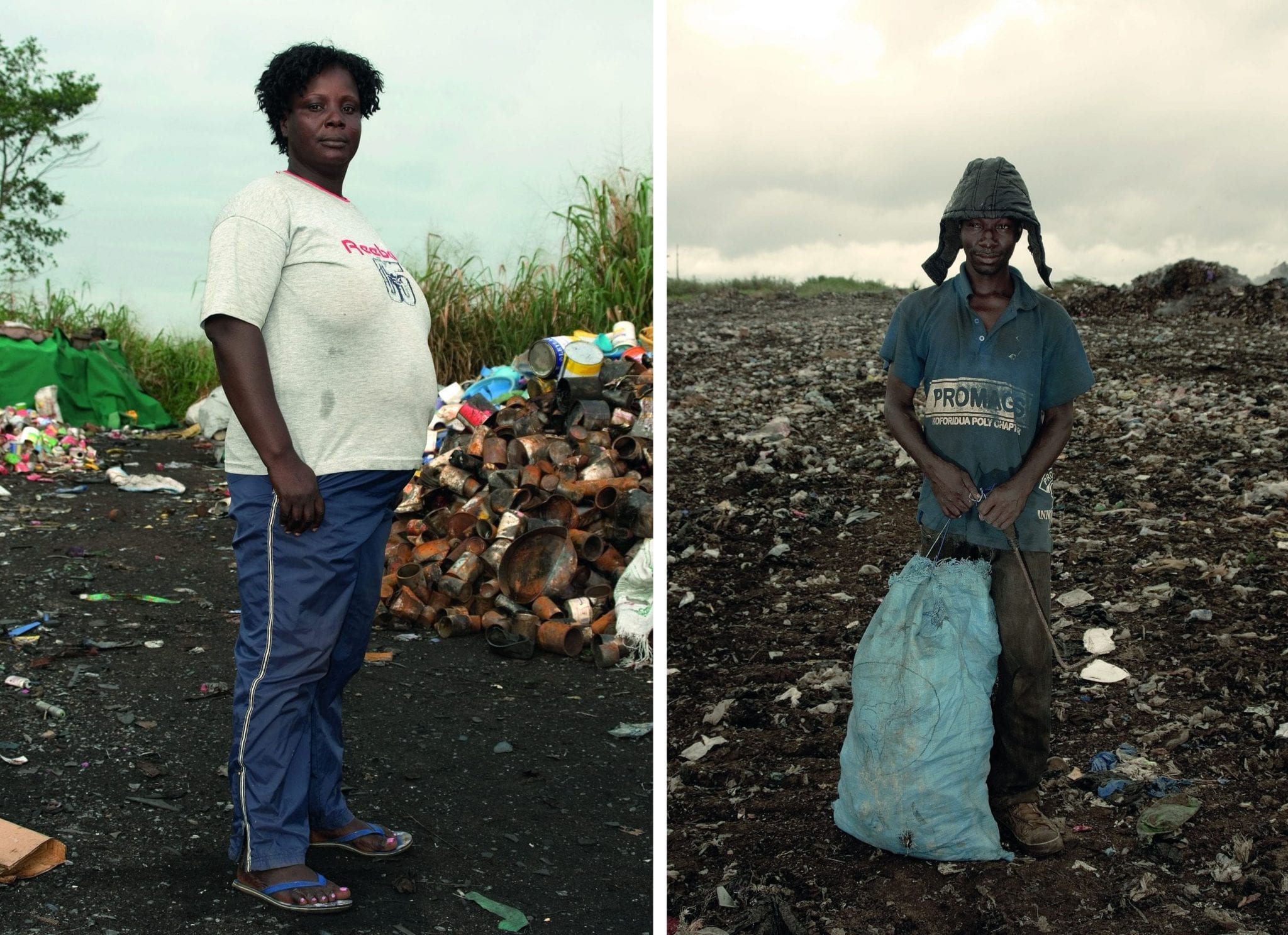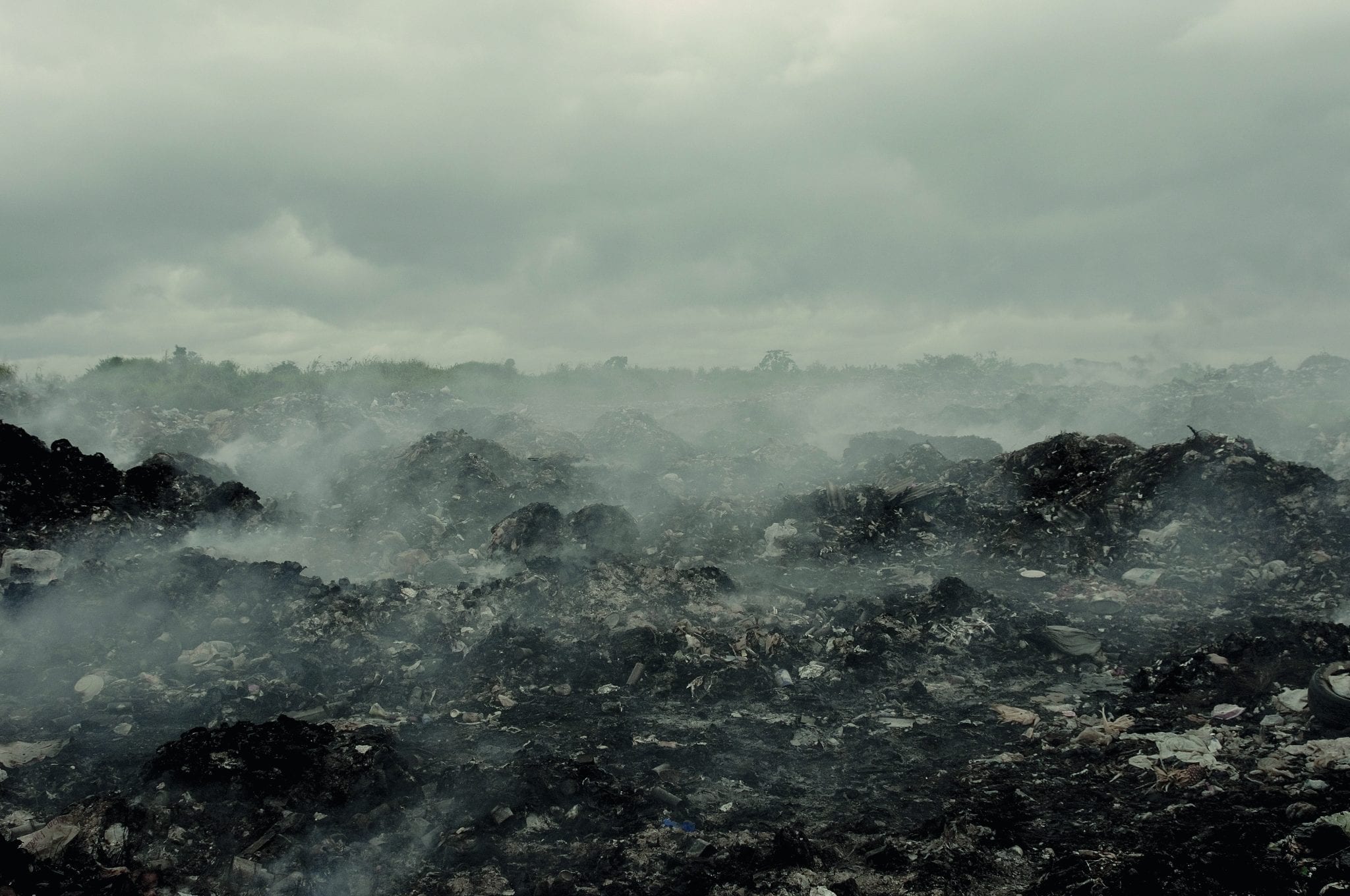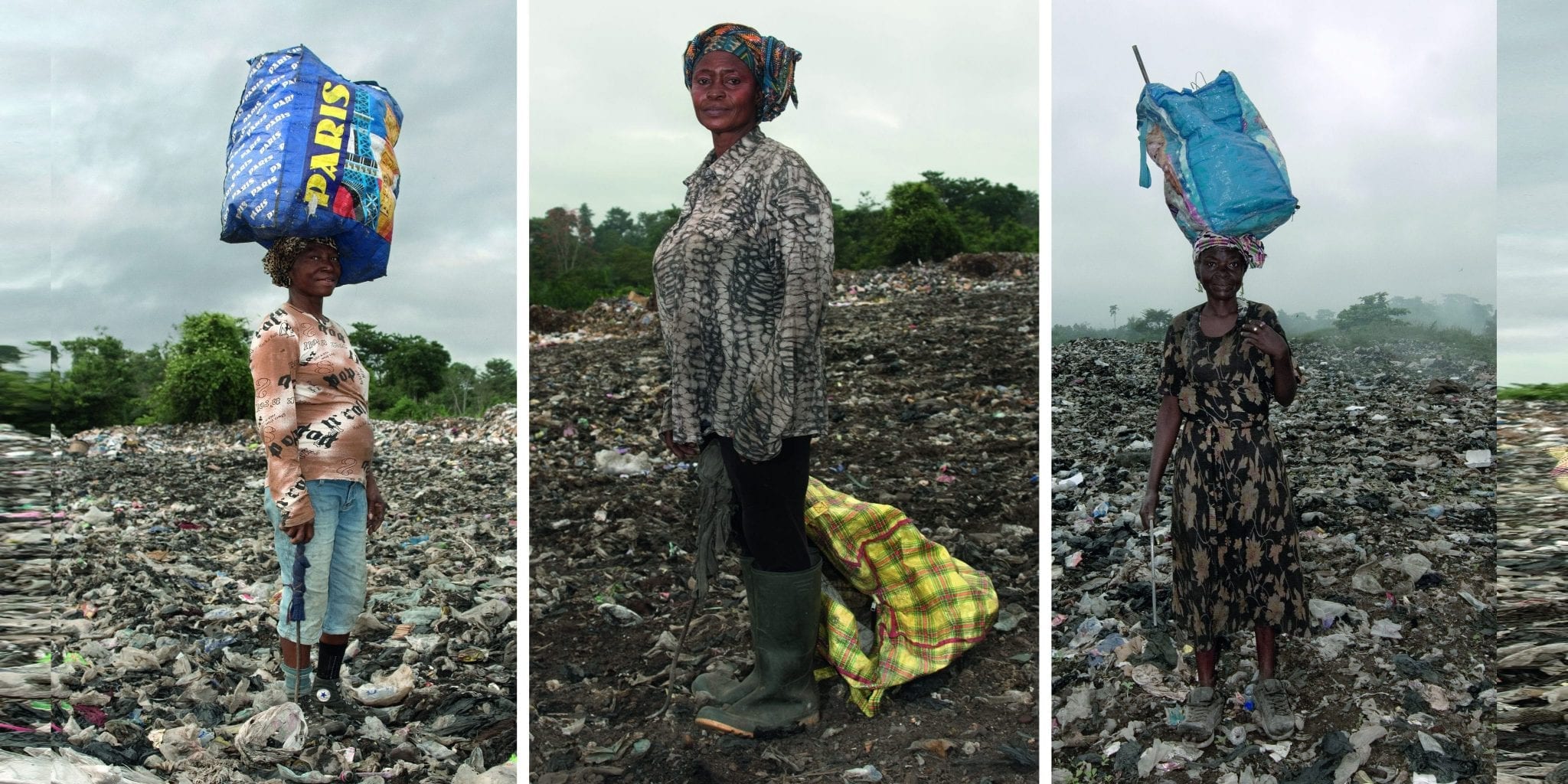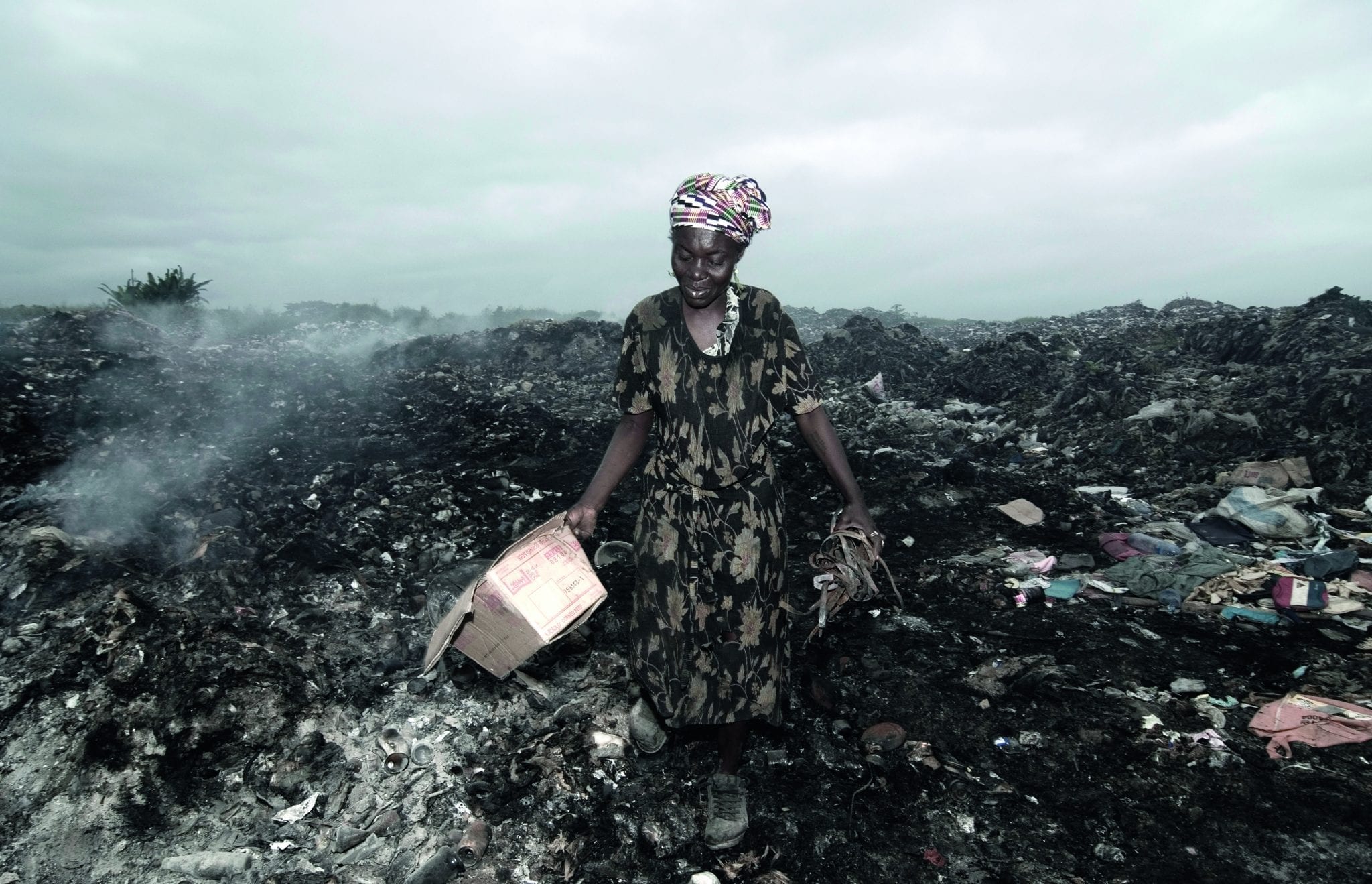“Bwala five five” is the name given by waste pickers to the main dumpsite of Koforidua, a town of 130,000 inhabitants in eastern Ghana. On a regular working day, about 15 women and children work on the site, picking whatever may have some value from the rubbish deposited by municipal garbage trucks. They come equipped with nothing but a piece of bent steel, used as a hook, wear gloves made out of old socks, use electric cables to secure their trousers and usually have to start the day by looking for wearable shoes in the dump.
They collect hard plastic and cans, which they sell once a month to a processing company. Plastic is worth 50 pesewas a kilo (0,20€) while metal only brings 20 pesewas a kilo (0,08€).
The work is physically demanding and dangerous, as only those who get very close to the truck as it dumps its load can grab the best and larger pieces of plastic. Trucks come in at all times, zigzagging between people, sheep, cows and vultures, emptying their load of waste and speeding back to town for the next collection round. The whole area is heavily polluted, covered in the toxic smoke of slow fires that seem to burn night and day. Finding metal in burnt out sections is of course easier but breathing the fumes day after day is costly. Those who specialize in such work complain of breathing problems and often spend most of the little profit they make on medicines and medical fees.
None of the adult waste pickers of Koforidua believe they will ever find a “real” job, away from the dumpsite. None of the children who work there go to school.
Olivier Ervyn (b.1970) is a Belgian documentary photographer. Based in Brussels, he has travelled extensively throughout Africa to document everyday life. The Ghana series is part of a wider project to document people at work and the extent to which some take risks to earn a living. He is currently working on two other projects, one on African churches in Europe and the other on new forms of poverty in developed economies.







